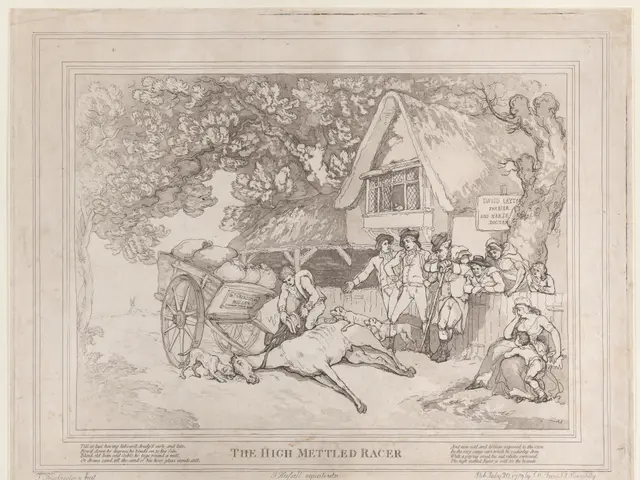Gaming experts argue for justice in ADR
In the often tumultuous world of online gaming, Alternative Dispute Resolution (ADR) mechanisms have gained traction as a means to ease conflicts between operators and players, promoting a sense of fairness and upholding consumer rights. Gambling industry bigwigs weighed in on ADR's importance during a panel at SiGMAC Europe, emphasizing its benefits and pitfalls as a vital tool in building trust, reinforcing integrity, and protecting consumer rights.
Bridge to Resolution
ADR acts as a pre-legal vehicle to mediate disagreements between gambling operators and gamers. Oliver De Bono, Quantum Gaming's CEO, described it as a structure that "protects players, and in some cases operators, to ensure that before reaching a severe legal dispute, there is an intermediary." De Bono clarified that ADR is not solely "there to work against" operators; instead, it also safeguards them by buffering them from the legal burdens of client disputes.
Duncan Garvie, Head of ADR Services at CasinoReviews.com, echoed De Bono's sentiments. Garvie stated that, despite an operator's ability to deliver as expected, friction can still arise in the gaming industry, necessitating ADR to facilitate a smoother resolution process.
ADR cultivates a sense of fairness by giving Smalltime gamers—who may not have the financial means to litigate—an opportunity for equitable treatment.
Fair Play and Predatory Terms
Conversations revolving around fairness in online gaming frequently touch upon "predatory terms"—conditions that may seem unfavorable. Operators, according to De Bono, must tread carefully, ensuring that such clauses don't harm their reputation. De Bono emphasized that maintaining transparency is vital to foster a sense of support among players, who are apt to feel cheated by overly restrictive or seemingly unfair terms.
Marianna Tavella, Chief Legal Officer at SiGMA Group, focused on the legal complexities between operators and slot providers that may complicate dispute resolution. "We often see cases where an operator bears the blame, even when a slot provider might be at fault," Tavella explained. She highlighted the importance of clear indemnity clauses in contracts and contextualizing conflicts while defining responsibility to create fairer agreements. Tavella also stressed that the ADR framework helps ensure that both operators and providers are accountable.
Land-Based vs. Online Disputes
Tânia Pinho, Lektou – Cortés' Senior Associate, observed differences in ADR tactics between land-based casinos and their virtual counterparts. ADR is relatively uncommon in brick-and-mortar casinos, and players often lack clear paths to address unfair treatment. "In land-based markets, there's often no clear process for a customer to claim that they were treated unfairly," Pinho noted, contrasting this with online platforms that frequently offer ADR services.
ADR: The Industry's Cornerstone
Mex Emini, SiGMA Group's CTO, spoke about the future of ADR, particularly its potential in unregulated gambling markets. "We've developed a platform where players can address their issues directly with operators," Emini shared, describing ADR as not merely a service but a way to foster a healthier, more equitable industry. "Embracing ADR is how you build retention—by creating a win-win for both operators and players," Emini concluded.
Emini asserted that while many markets lack formal ADR requirements, platforms have devised tools to manage complaints swiftly. "In most cases, operators respond quickly, and most complaints are resolved in a timely manner," he stated, emphasizing ADR's efficiency in resolving up to 90% of disputes.
"Regulated markets require adherence to consumer protection laws, contract laws, and experience-based laws," Garvie stated, pointing to the significance of ADR in keeping operators compliant. Ultimately, the consensus among experts is that ADR serves as more than a mere conflict resolution tool; it's the cornerstone of a fair and equitable gambling industry. As Garvie suggested, "It's about building a foundation where players feel heard and operators can operate transparently."
Casino-and-gambling disputes are often addressed through Alternative Dispute Resolution (ADR), serving as a buffer between operators and players to ensure fairness. This structural mechanism, as explained by Oliver De Bono, not only works in favor of players but also protects operators from legal burdens by mediating disagreements.
ADR plays a crucial role in maintaining fairness for smalltime gamers, providing an opportunity for equitable treatment when they may lack the means to litigate. Moreover, ADR is vital in the gambling industry to resolve conflicts swiftly, as suggested by Mex Emini, fostering a healthier, more equitable industry overall.








